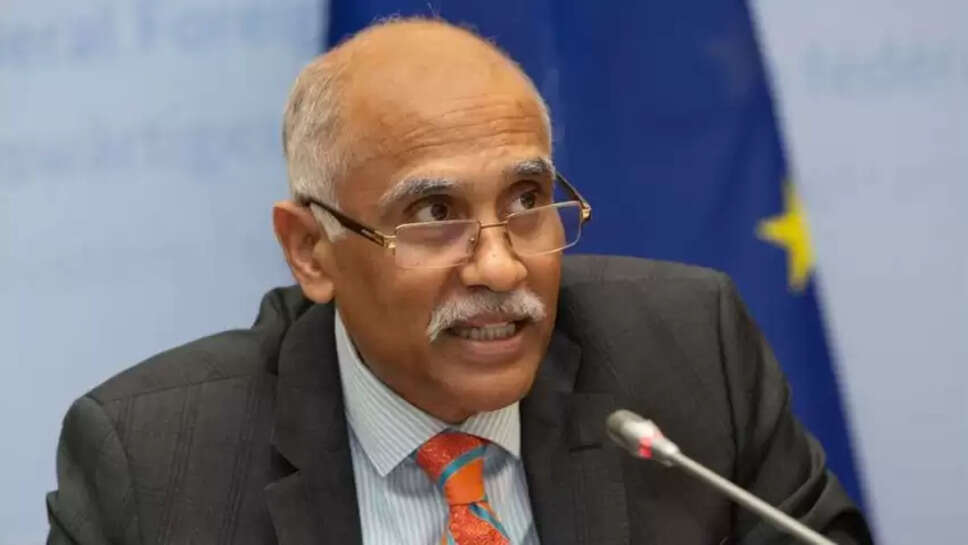Intermittent Pauses Inadequate: India Demands Full Ceasefire in Gaza

In a firm diplomatic message, India has called for an immediate and full ceasefire in Gaza, asserting that the intermittent humanitarian pauses currently being implemented are insufficient to address the scale of the humanitarian crisis. The statement marks a shift from India’s earlier cautious approach to the Israel-Gaza conflict and aligns it more closely with the growing international demand for a sustained cessation of violence.
The call was made during a special session of the United Nations, where Indian representatives expressed deep concern over the deteriorating situation in the Gaza Strip and the staggering civilian casualties that continue to rise amid ongoing hostilities.
A Growing Global Concern
The Gaza conflict, now stretching into its tenth month, has seen relentless airstrikes, ground operations, and rocket attacks, leading to thousands of deaths — many of them women and children. While temporary humanitarian pauses have been declared from time to time to allow aid to enter the strip or facilitate hostage exchanges, these brief lulls have done little to alleviate the suffering of civilians or to create a path to long-term peace.
India's envoy to the UN voiced the country’s dismay over the ineffectiveness of these limited efforts, stating:
“Intermittent humanitarian pauses are not enough. What is needed is a comprehensive and durable ceasefire to prevent further loss of innocent lives.”
India's Shift in Tone
India has traditionally maintained a delicate diplomatic balance in the Israel-Palestine conflict. While reaffirming support for a two-state solution and expressing concern for Palestinian civilians, India has also shared strategic ties with Israel, particularly in defense, intelligence, and agriculture.
However, recent developments in Gaza — especially rising civilian deaths, the destruction of critical infrastructure, and worsening access to medical care and food — appear to have prompted New Delhi to adopt a more assertive stance.
The use of stronger language by Indian diplomats, the direct appeal for a ceasefire, and the criticism of the current humanitarian mechanisms indicate a shift in India’s diplomatic positioning — one that leans more openly toward humanitarian values while maintaining its strategic posture.
Humanitarian Catastrophe Escalating
International organizations, including the United Nations, International Red Cross, and Doctors Without Borders, have warned that Gaza is teetering on the edge of a full-blown humanitarian catastrophe. The blockade, compounded by ongoing military operations, has left thousands displaced and over 60% of the population without access to clean water or electricity.
India, in its remarks, underlined the importance of "unhindered humanitarian access" to civilians, urging all parties to ensure safe corridors for food, water, fuel, and medical aid. Indian officials also condemned attacks on hospitals and refugee shelters, reiterating that international humanitarian law must be upheld by all sides.
India’s Broader Role
India has long advocated for a negotiated two-state solution, envisioning a sovereign, independent State of Palestine living side by side with Israel in peace and security. Its consistent position at multilateral forums has been one of constructive engagement, but not overt confrontation.
However, India’s recent statement reflects growing frustration with the lack of tangible progress in de-escalating the conflict. It also demonstrates India's willingness to contribute more actively to global peacebuilding efforts.
Sources within the Ministry of External Affairs suggest that India could participate in future international peace initiatives, including backchannel diplomacy and aid distribution. India has already sent humanitarian supplies to Gaza through coordinated efforts with regional partners like Egypt and Jordan.
A Response to Domestic Sentiment?
India's diplomatic recalibration may also reflect shifting domestic opinion. With its large Muslim population and a long history of supporting Palestinian self-determination, there has been significant civil society pressure for the government to adopt a stronger stance against the violence in Gaza.
Protests, petitions, and appeals from academics, former diplomats, and human rights activists have urged the Indian government to move beyond vague expressions of concern. The recent statement, more concrete in both tone and policy recommendation, may be a response to this rising chorus.
Reactions from Global Stakeholders
India’s call for a ceasefire has drawn praise from multiple quarters, particularly Arab and non-aligned countries. Diplomatic observers have noted that India’s voice carries weight due to its neutral history in the conflict and its growing global stature.
The Palestinian Authority welcomed India’s statement, calling it "a reaffirmation of moral responsibility and solidarity with a people under siege." Meanwhile, Israel has yet to respond directly, although it continues to maintain that military operations are necessary to neutralize Hamas and ensure long-term security.
India, in turn, has carefully refrained from assigning blame in its statements — instead focusing on the humanitarian consequences and the need for de-escalation.
Strategic Implications
While the statement is humanitarian in tone, it also reflects India's aspiration to be seen as a responsible global actor — especially as it seeks greater influence in multilateral institutions such as the UN Security Council.
India’s outreach may also be strategically timed, as it prepares to host upcoming high-level diplomatic forums, including summits under the G20 and BRICS umbrellas. A balanced and assertive foreign policy, particularly on sensitive global conflicts, reinforces India’s credentials as a mediator and peacebuilder.
The Road Ahead
Despite widespread calls for a ceasefire, including by the UN Secretary-General, the EU, and several Gulf countries, the road to peace in Gaza remains fraught. Military operations continue, and ceasefire negotiations have stalled multiple times over issues such as hostages, border control, and future governance of the Gaza Strip.
India’s position, therefore, adds moral and diplomatic weight to the growing international chorus — but whether it will help shift the conflict’s trajectory remains uncertain.
India’s appeal for a comprehensive ceasefire in Gaza is a timely and morally grounded intervention in a conflict that has already claimed too many lives. By calling out the insufficiency of temporary pauses, India is signaling that humanitarianism cannot be tokenistic — it must be total.
As one of the world’s largest democracies with a long-standing voice in global peace forums, India’s stance matters — both symbolically and strategically. Whether this statement marks the beginning of a deeper engagement in the peace process remains to be seen. But for now, it sends a clear message: in the face of prolonged human suffering, silence is not an option.
